Last-Minute NYC Holiday Gift Guide 🎁
We’ve created a holiday gift guide with presents for the intrepid New Yorker that should arrive just in time—

Find out what's inside the iconic spire, what lies in the basement, and more secrets of NYC's Chrysler Building!

The Chrysler Building is one of the most beloved of New York City’s skyscrapers, an architectural manifestation of both the Art Deco era and the automobile age. Famous as it may be, the Chrysler Building holds many fascinating secrets, compounded by the fact that it is difficult to visit and doesn’t offer tours, unlike the Woolworth Building and the Empire State Building. Here are 10 lesser-known facts about the Chrysler Building, many derived from a Q&A with David Stravitz, the author of The Chrysler Building: Creating a New York Icon Day by Day with The New York Times in 2009.
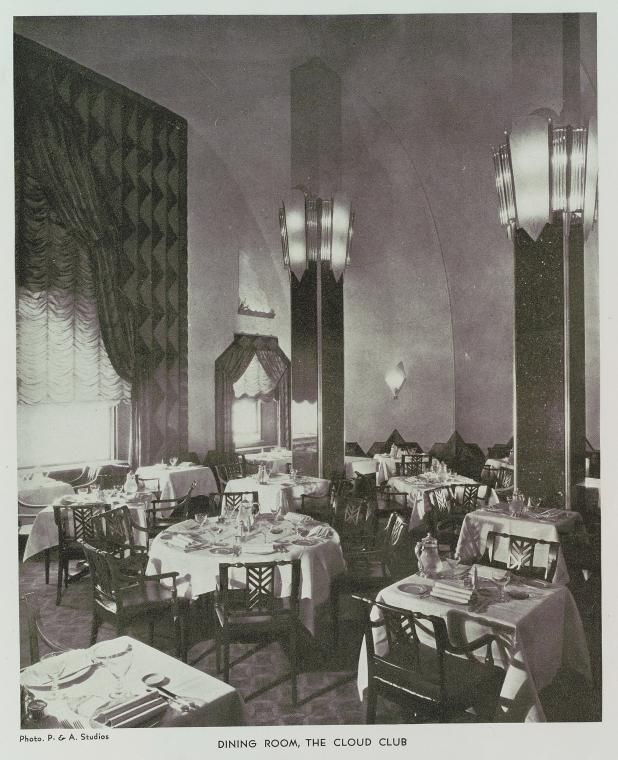
Once located on the 66th to 68th floors of the Chrysler Building, The Cloud Club once sat atop one of the city’s most distinctive skyscrapers. The New York Times called The Cloud Club “the inspiration for many of the others.” It was initially designed for Texaco, the American oil company that occupied 14 floors of the Chrysler Building, and used as a restaurant for executives.
The Cloud Club had an eclectic mix of designs, ranging from Futurist in the main dining room, Tudor for the lounge, and Old English for the grill room. Perhaps because of its decor, or its original function, it never became hip and stylish like Rockefeller Center‘s Rainbow Room but it did have amenities like a barber shop and locker rooms that were used to hide alcohol during Prohibition. After the club closed in the late 1970s, the spaces was gutted for office tenants.
LIFE photographer Margaret Bourke-White, well-known for her images of skyscrapers in the 1920s and 1930s, lived in an apartment on the 61st floor. It was on this floor that Bourke-White herself was photographed atop one of the gargoyles in 1934. The apartment’s lease was co-signed by Time, Inc. because the building would not rent the apartment to a woman despite her wealth and fame. She paid $387.92 per month to live there.
According to The New York Times, Bourke-White hired “her good friend, John Vassos, an industrial designer, to create an Art Moderne stylish interior, with extensive built-ins, subdued palette, woods, and metals. There was a main sitting area, an alcove for her desk, and stairs that went out to the terrace.” Walter P. Chrysler owned another private apartment on the top floor. From there, he was said to boast that he had the highest toilet in Manhattan.
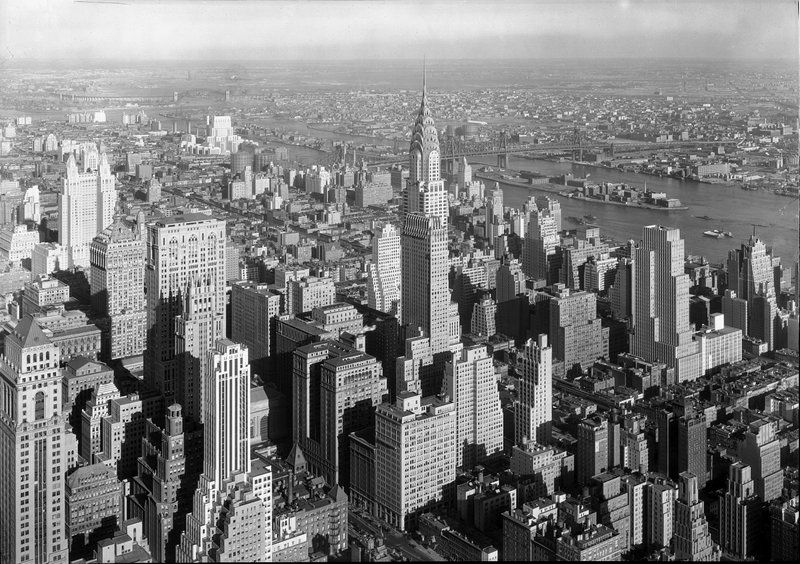
One spot that didn’t make it into the book The Chrysler Building: Creating a New York Icon Day by Day was the water bottling plant, labeled in an old film negative as the “hydrozone water bottling” unit. After the water was filtered and bottled, it would be sent up to higher floors throughout the Chrysler Building.
Author David Stravitz wrote, “Tap water was filtered through an intricate system and then bottled for water coolers to be distributed to tenants in the building. The large room was magnificent, with fabulous tiling throughout. Quite exotic for a space most people never saw.”
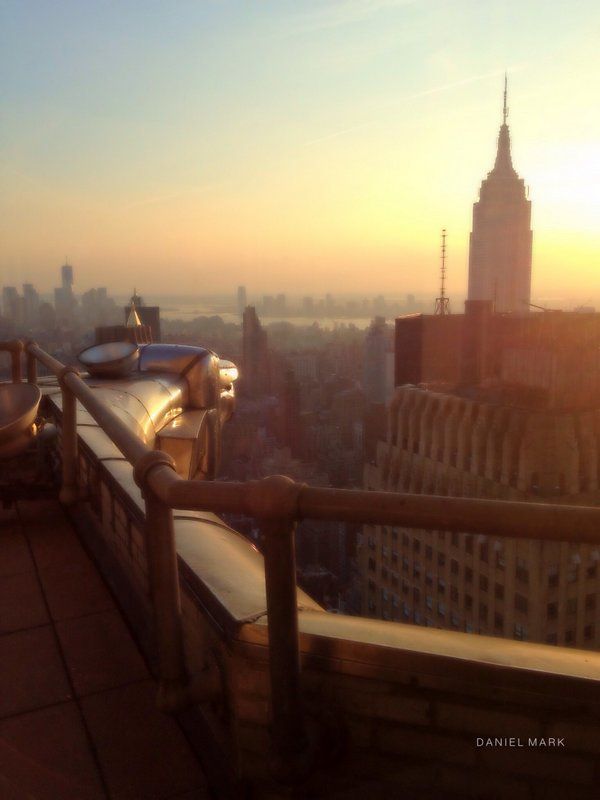
In 1931 when the Chrysler Building opened, anyone willing to pay $0.50 could visit the 71st-floor observatory and take in views of the city from all four sides. The celestial-themed observation deck that was located in the building’s spire closed in 1945. According to Moses Gates in his book Hidden Cities, the deck is now occupied by a private firm.
Rumblings of a new skydeck for the Chrysler Building surfaced in 2022, according to Curbed New York. The observation deck, which some estimate will cost up to $40 to enter, would allow access to the currently private building. Though there are no finalized construction plans for the Chrysler Building’s new observation deck, the Landmarks Preservation Commission approved its construction in 2020.
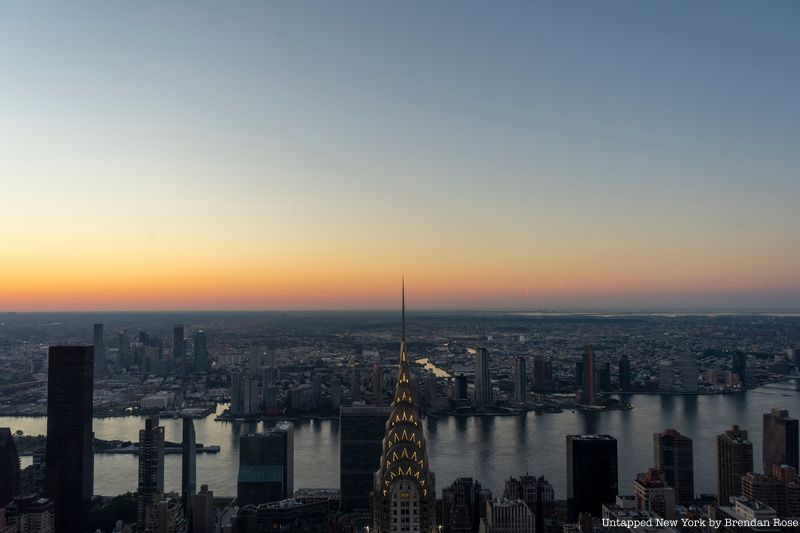
Cooper Union has owned the land the Chrysler Building sits on since 1902. As a result, not a single dollar in taxes from the Chrysler Building has ever gone to New York City. The land is an endowment for the college. Instead of paying the state, Chrysler Building owners pay Cooper Union, which is tax-exempt. In early 2025, the college won a legal battle with real estate company R&S Chrysler LLC and will now serve as the building's landloard.
The land the Chrysler Building sits on has another hidden fact: it is slanted. The property existed before the 1811 grid was created, resulting in the slant that the Chrysler Building sits on today. Before the building was erected, the property ran against the old Boston Post Road.
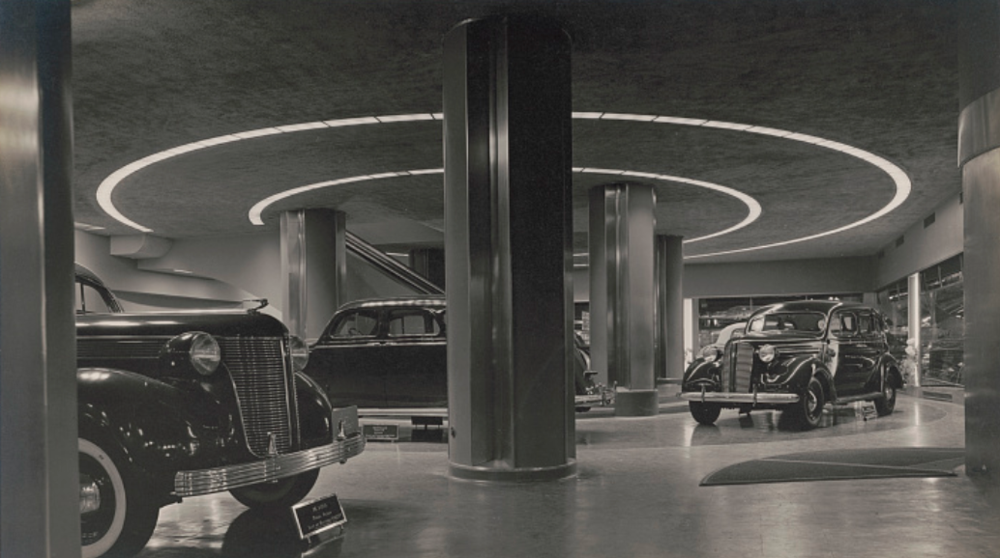
The original purpose of the Chrysler Building was to act as a headquarters for Chrysler. Though this never materialized, an automobile showroom was located in the lobby of the building. This is the most direct reference to the company that built the skyscraper.
The New York Times reported in 1997 that the showroom actually once occupied the first two floors of the lobby. The lobby, with Moroccan marble walls, yellow marble floors, chrome steel ornamentation, and murals, was an architectural tribute to the primacy of the automobile at the time.
Upon the release of Hidden Cities, author Moses Gates took Opie of the Opie & Anthony Show to the top of the spire, revealing in the above video that the Chrysler Building’s spire does not hold much other than concrete and infrastructure.
“The crazy thing is that you think of the Chrysler Building as Art Deco — shiny, chrome, metal,” Gates says in the video. “You’re inside it and it’s all reinforced concrete. You never would have thought it.”
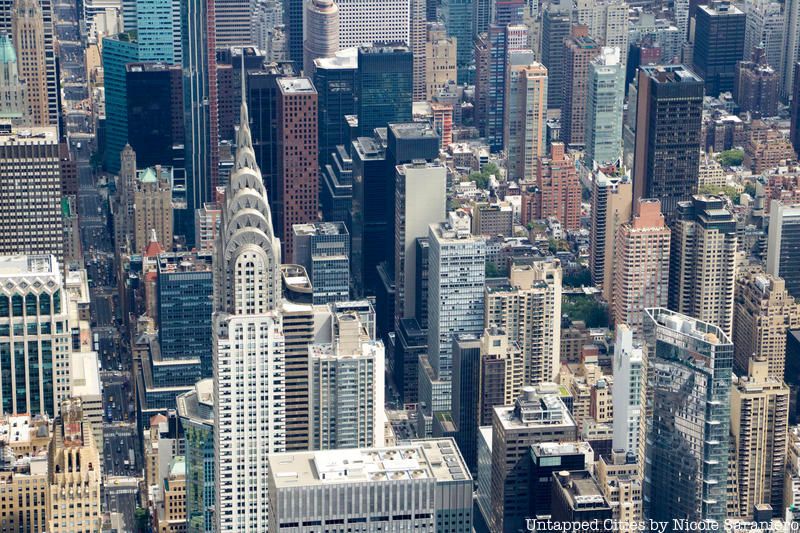
There is a popular urban myth that the Chrysler Building’ spire is made from actual hubcaps, or the decorative exterior of a car wheel. Contrary to popular belief, the spire is made of stainless steel. Standing at 180 feet, the spire allowed the building to be the tallest building in the world for about two years.
According to Stravitz, the material for the spire was “produced in sheet stock called Enduro KA-2 from Germany. It was then hand-fabricated on site from two upper floors in the building.” He prompts readers to “Imagine the precision on those intricate compound angles.”
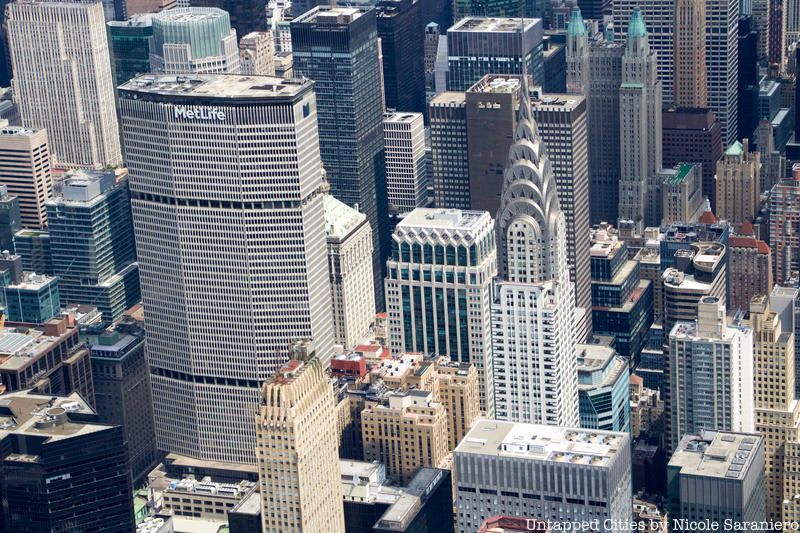
The architects behind the construction of both the Chrysler Building and 40 Wall Street wanted to build the tallest building in the world, In order to trick their opponents, the masterminds behind the Chrysler Building decided to construct the spire secretly inside the building.
On October 23, 1929, the construction employees lifted four separate pieces of the spire onto the dome of the building. Riveted to each other, the pieces of the spire slowly climbed. By the time the spire was installed, the Chrysler Building was 1,046 feet tall. Today, the spire stands at 197 feet and weighs 300 tons.
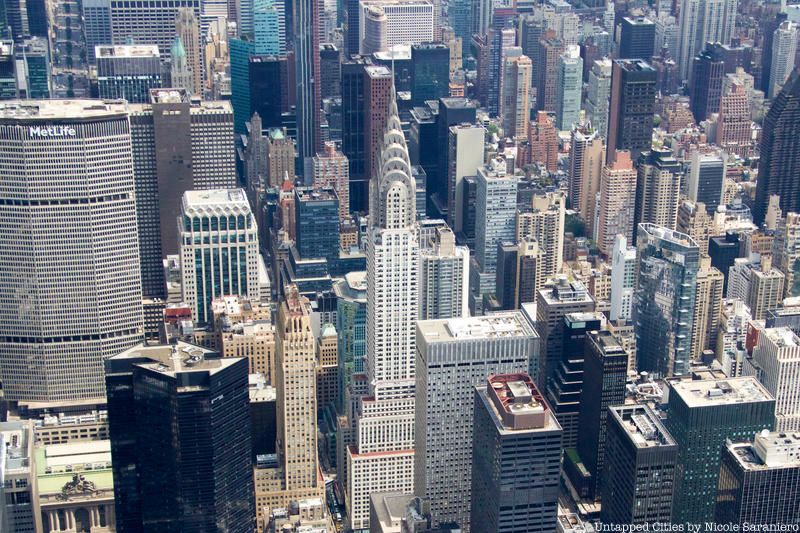
Unlike the Empire State Building, which was built from existing stock materials, the Chrysler Building’s exterior design was customized and built in sheet metal shops on the 65th and 66th floors. Within this shop, designers also crafted the tower’s secret spire.
The exterior of the building can be characterized by its steel frame and stainless-steel cladding. The building boasts curved cladding, or a curved protective skin, in addition to its iconic triangular windows. Particularly notable near the top of the building, a solar theme is present in the building’s design.
Read about the Secrets of the Empire State Building and of Grand Central Terminal!
Subscribe to our newsletter